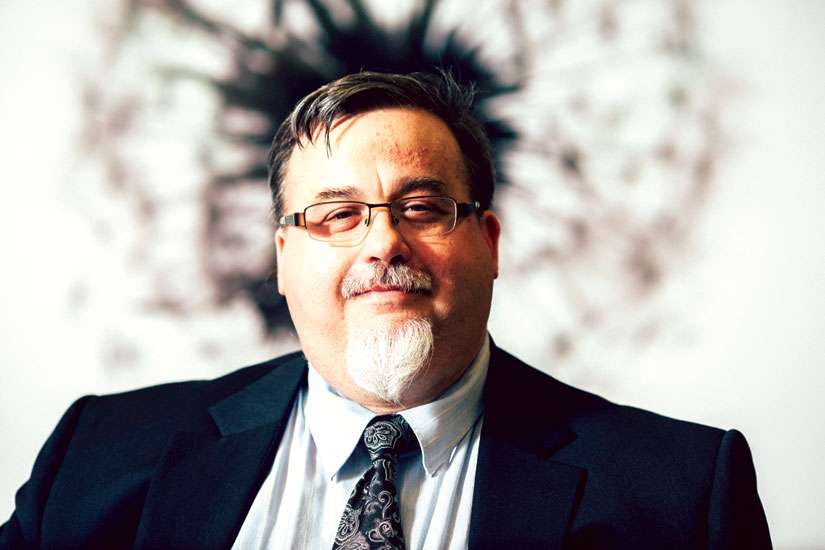The incoming dean of theology at Toronto’s University of St. Michael’s College is an expert in Medieval theology. But rather than lock himself away in ancient monastery libraries, Ginther puts 21st-century technology to use in getting the fullest possible picture of what people wrote, why they wrote it and what they meant 1,000 years ago.
At the Jesuit St. Louis University, Ginther became the director of the Centre for Digital Theology. As early as 1998, Ginther posted the Latin writing of 13th-century Bishop of Lincoln Robert Grosseteste to a web site and invited scholars around the world to add their insights about the scholar-bishop who established much of the English intellectual tradition at Oxford University.
Ginther is also the originator of the Electronic Norman Anonymous Project (normananonymous.org), which harnesses the Internet to host a global investigation into 35 anonymous little essays written between 1096 and 1110 in the cathedral city of Rouen.
“Sticking it on the Internet doesn’t make it scholarly, any more than not sticking it on the Internet makes it scholarly,” said Ginther from St. Louis, while still planning to move to Toronto this summer. “What I have been trying to work on in my field in terms of theology and digital humanities has been to make the kind of research we do in theology both interdisciplinary and transparent.”
In taking up the Sisters of St. Joseph Chair in Theology as well as duties as dean, Ginther will be coming home. He grew up in Toronto and studied first at York University before taking both an MA and a PhD in Medieval studies at the University of Toronto’s Centre for Medieval Studies. He became a lecturer in Medieval theology at the University of Leeds in 1995 and moved to the University of St. Louis in 2002.
“I’m excited about coming to St. Mike’s because it is both a traditional and innovative Catholic university,” he said.
Finding new ways to think about tradition or think traditionally about technology is a tradition of its own at St. Michael’s. It was the invention of microfilm and photocopying that propelled philosopher Etienne Gilson and Basilians Fr. Henry Carr and Fr. Edmund McCorkell to found the Pontifical Institute for Medieval Studies. The new technologies of 1929 made it possible to gather manuscripts previously spread out in libraries all over Europe into a single location where scholars could study them.
But for Ginther, studying theology is about something more than finding novel ways to combine old and new.
“To practise theology is to practise it within an ecclesial context,. That happens in a variety of ways... We have personal responsibility to be involved,” he said.


